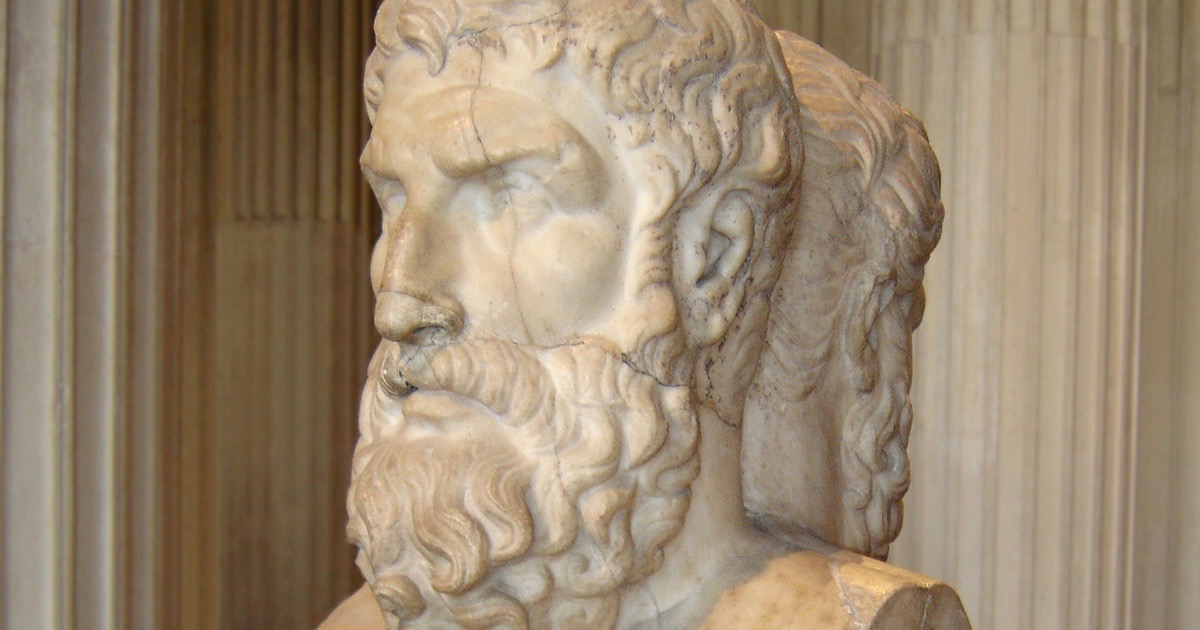 Evolution
Evolution
 Intelligent Design
Intelligent Design
Charles Darwin and the Ghost of Epicurus

Editor’s note: We are delighted to present a new series by Neil Thomas, Reader Emeritus at the University of Durham, “Charles Darwin and the Ghost of Epicurus.” This is the first article in the series. Look here for the full series so far. Professor Thomas’s recent book is Taking Leave of Darwin: A Longtime Agnostic Discovers the Case for Design (Discovery Institute Press).
Strange as it might at first appear, Darwinism, when viewed from a philosophical perspective, might more accurately be understood as a late sub-branch of ancient speculative thought than as science in the more rigorous, modern sense of that term. Indeed, some classically educated contemporaries of Darwin saw in his ideas little but a 19th-century rehash of thoughts that they had once studied in ancient Greek and Latin authors in their university days. “I cannot understand why you scientific people make such a fuss about Darwin. Why, it’s all in Lucretius,” harrumphed Victorian educator and poet Matthew Arnold to a biology professor in his circle.1
Foundations of Darwinian Materialism
For the ancient Greek writer Epicurus and his later Roman follower, Lucretius, the entire mystery of the world’s awe-inducing complexity was to be sought in different shapes and objects generated at random by the chance interaction of elements. Life and mind, the (unsubstantiated) claim went, had come about as the emergent properties of particular types of atomic configuration (hence the term “atomism” commonly applied to this philosophical school). In vague and question-begging terms was it contended that Nature had evolved “spontaneously” (magically?) into more complex combinations driven by purely contingent occurrences. Plants and animals had “evolved” via that extended process of trial-and-error which Darwin would later term natural selection. In short, Epicurus had conceived of nature as an aggregate of material entities operated by blind and unvarying natural laws later to become better known to the modern world under the heading of Darwinian materialism.
The doctrine of atomism clearly rendered unnecessary the invocation of any Greek demiurge or originating creator. According to the curiously hybrid conception of Lucretius, gods did exist but inhabited a separate intermundia or intermediate realm where they remained largely indifferent to human concerns. Epicurus was hostile to the capricious, uncaring and amoral gods of the ancient Greek pantheon, so hostile in fact that he conceived of his philosophy as a kind of balm for the soul or spiritual therapy for his peers. His ambition as a philosopher was to enable people to live in simple amity with each other without having to fear the gods or the terrors of the afterlife.2
Ancient Psychological Therapy
The supreme good for Epicurus was that people should be free to live out their allotted span of life free from the fear that the worst was yet to come. His ultimate aim was to bring comfort and peace of mind (ataraxia) to his fellows by all such argumentative and rhetorical means that he could muster. Atomism was in a sense not so much what we today would consider (neutral) science or unbiased philosophical speculation as an activist form of psychological therapy for his Athenian fellow citizens whom he deemed to be oppressed by untoward cosmic forces of which the gods were the personifications.
Next, “The Enlightenment (Re)turn to Atomism.”
Notes
- See John W. Judd, The Coming of Evolution, originally 1912 (republished, Gloucester: Echo), p. 13.
- It will be recalled that when Aeneas encounters his father in the Underworld in Virgil’s Aeneid, it is a rather depressing place of eternal gloom — although it does not evidence the vivid torments of the Christian doctrine of hell.
